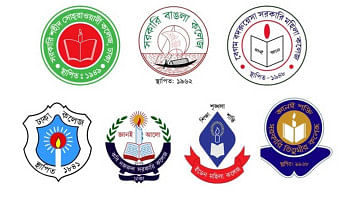Bangladesh backward on human rights
Bangladesh tumbled backward on human rights in 2013 as it engaged in a harsh crackdown on members of civil society, the media and political opposition, Human Rights Watch says in its World Report 2014.
The authorities often employed violent and illegal measures against protesters, and failed to initiate any investigations into credible allegations of unlawful deaths at the hands of its security forces, said the report released yesterday.
Measures to protect labour rights after a series of factory deaths fell far short of international standards, it said.
"This year has been tragic for Bangladesh, with political unrest leading to unnecessary deaths of protesters, security personnel, and bystanders," said Brad Adams, Asia director at Human Rights Watch (HRW).
"The government has failed to stem the cycle of violence by ordering investigations into violations by security forces, and instead has become increasingly intolerant of dissent, going to extreme extents to suppress opposition and criticism."
In its 667-page report, HRW reviewed human rights practices in more than 90 countries.
Violent street protests broke out in Bangladesh in February 2013 and have continued throughout the year, killing nearly 200 and injuring thousands, the report said.
The earlier protests were linked to decisions by the International Crimes Tribunal (ICT), a domestic court set up to put on trial those responsible for war crimes during Bangladesh's Liberation War in 1971, it added.
Street violence continued after the main opposition party alliance decided to boycott the January 5 elections. While the political parties have failed to restrain their supporters from engaging in violence; state forces, on occasion, used excessive force to restore law and order.
The execution of Jamaat-e-Islami leader Abdul Quader Mollah led to further protests and violence at the end of the year. The authorities arbitrarily arrested members of the main opposition party, the BNP, said the report.
“Atheist” bloggers were arrested, as was a prominent newspaper editor, it said, adding that human rights defenders Adilur Rahman Khan and Nasiruddin Elan were arrested in August.
Despite pledges, the government failed to improve working conditions in garment factories and other industries after the deaths of more than 1,100 workers in the Rana Plaza collapse.
Under domestic and international pressure, the Bangladeshi parliament enacted changes to the Labour Act in July.
The amendments lifted some restrictions on union registrations but failed to effectively protect the right to freedom of association. Regular inspections of factories, due to start in September, remained stalled by administrative delays.
The government's promised relocation of the tannery industries in Hazaribagh of Dhaka remained unfulfilled.
In a positive move, the authorities dropped criminal charges against several labour rights leaders that appeared to be politically motivated, the HRW report said.
The courts also ordered all charges to be dropped against Limon Hossain, a young man shot and maimed by security forces in a botched operation in 2011.
However, problems with the war crimes trials and the mutiny trial against the members of Bangladesh Rifles (now renamed Border Guards Bangladesh) remained unresolved. Many accused were sentenced to death in trials with serious due process concerns, said the report.
HRW and The Economist, journalists, and television show guests were issued orders by the war crimes court to show cause for critical remarks and reporting on the tribunal.
"The crackdown throughout this year on any form of dissent has been shocking, and has exacerbated the country's human rights crisis," Adams said.

 For all latest news, follow The Daily Star's Google News channel.
For all latest news, follow The Daily Star's Google News channel. 



Comments